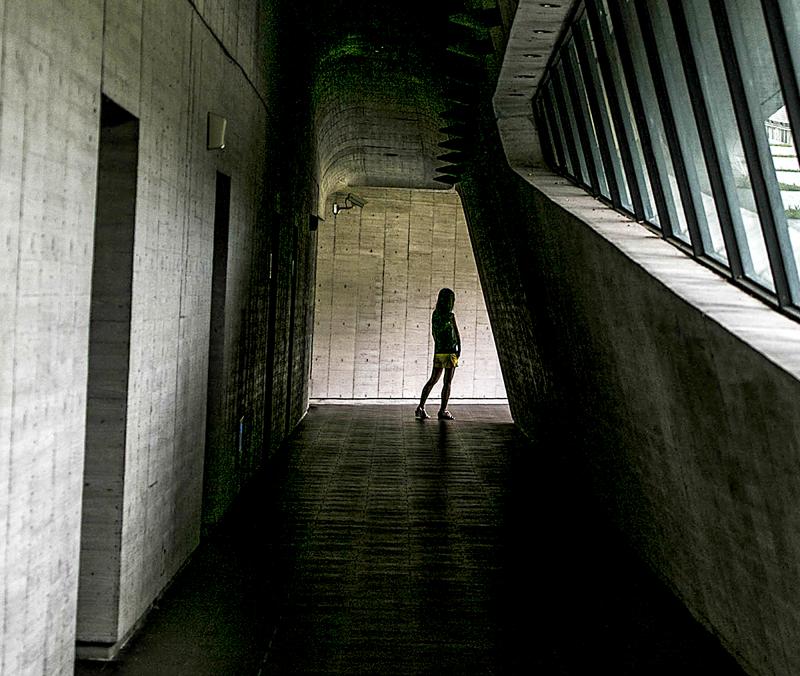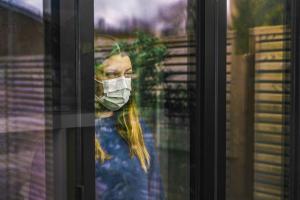While the region shelters in place, many people are finding ways to stay entertained as they ride out the crisis.
For some people, however, the prospect of being confined to their home brings fear. Victims of domestic violence enter this lockdown with a set of safety precautions that goes well beyond hand washing and social distancing. For people facing domestic violence, the first protocol is identifying a safe room.
People's Place wants people who feel unsafe due to domestic violence to know the shelter-in-place order has not affected the services it provides. The agency wants everyone to know all services are still available. Domestic violence shelters are open 24/7, as are hotlines in English and Spanish. Advocacy and therapy for victims who are not in a shelter also continue to be available by phone and other means.
“Services are available 24/7,” said Sue Ryan, executive director of the Delaware Coalition Against Domestic Violence. “The concern is if people will be able to access those services. You have to be able to make a call or send an email, and if you are living with the abuser, the ability to do that may be curtailed.”
“There is no question that COVID-19 is impacting the safety of victims/survivors of domestic violence,” said Blanche Creech, People’s Place associate director. “Abusers isolate victims and manipulate situations, and will take advantage of the lockdown as a tactic to do that,” she said, citing a parent who has custody of the children for the weekend, but when it is time to return them, says they have been exposed to coronavirus and are not coming home.
There is a lot of financial abuse with domestic violence victims, and with less funding in the household, that abuse is expected to escalate, Creech said.
“In this time of great uncertainty, not knowing what could happen to the economy, not being able to find work and coming from a broken relationship, I am beyond grateful for People’s Place being here for me in my time of need,” one People’s Place client said.
“Being confined at home raises the risks of violence. The stress of economics and the fear of seeking help are all at the forefront,” Ryan said. “Fears of being alone in a home with an abuser are stressful, even when you can leave the house to go to work or be anywhere in public.”
As people are asked to stay home, some victims may not be able to get to a friend or relative for safety because of transportation issues, so that abuse will probably increase, Creech said.
Shelters follow Centers for Disease Control guidelines, and if the shelters are full, the agency has access to hotel rooms for extended periods of time. A limit on the length of shelter stays has been suspended, and no one is getting kicked out, Ryan said. Also, no one is being forced to stay; it is up to the individual to decide what’s right for them.
A domestic victim survivor staying at a shelter said, "Thank you for keeping the shelter open for me and my children. There's a roof over our heads, and staff is here for us. This is the best place for us right now. No other shelter would do that for us."
“People may have heard the courts are closed and may fear their orders can’t be processed, but the court officers are working with us to make sure the process doesn’t stop,” Creech said. “Everyone is working really hard to make safety paramount and continue to provide services while reducing risk and exposure.”
Police officers are the front line, and they are making sure victims’ information is entered into the system.
“When law enforcement goes out on a domestic violence call, they are still screening victims to call the hotline,” Creech said. “A key thing on every hotline call is safety planning, such as, where to go in the house when you are threatened.”
Since the option of going to a friend’s house or sheltering with extended family is more difficult with the threat of coronavirus, once the shelter is full, victims/survivors are put up in hotel rooms. This will increase agency expenses during the lockdown.
“Accessing hotel rooms and extending stays in shelters lead to a greater need for funding,” said Ryan. “Additional overtime and paid leave are also creating an added expense.
“Transportation is also deeply affected. The one thing we can’t do right now is individually transport people,” Creech said. “Public transportation is limited, and many victims don’t have access to a vehicle.”
The shelter has one large van so it can transport people while allowing everyone to keep a safe distance, she said.
Ryan said Delaware Alliance for Nonprofit Advancement is collaborating with the Delaware Community Foundation and the United Way of Delaware and other nonprofits to seek additional financial support for nonprofits during this crisis.
“We can really benefit from immediate donations because we are spending more money across the board,” said Creech. A donate button can be found on the website at peoplesplace2.com.
All services are going through a phone hotline, including intake for the shelter, advocacy in the community, delivering supplies or food to victims, counseling, and court case information.
To access services in English, call 302-422-8058. The Spanish language hotline, Abriendo Puertas, is 302-745-9874. Child Inc. has a statewide hotline; call 302-762-6110 or go to childinc.com.
DCADV’s website lists resources to help people facing domestic violence. Go to dcadv.org, and there is a safe button which will send the viewer to another website.
Editor’s note: Domestic violence survivors have not been identified by name to protect their safety and privacy.

























































